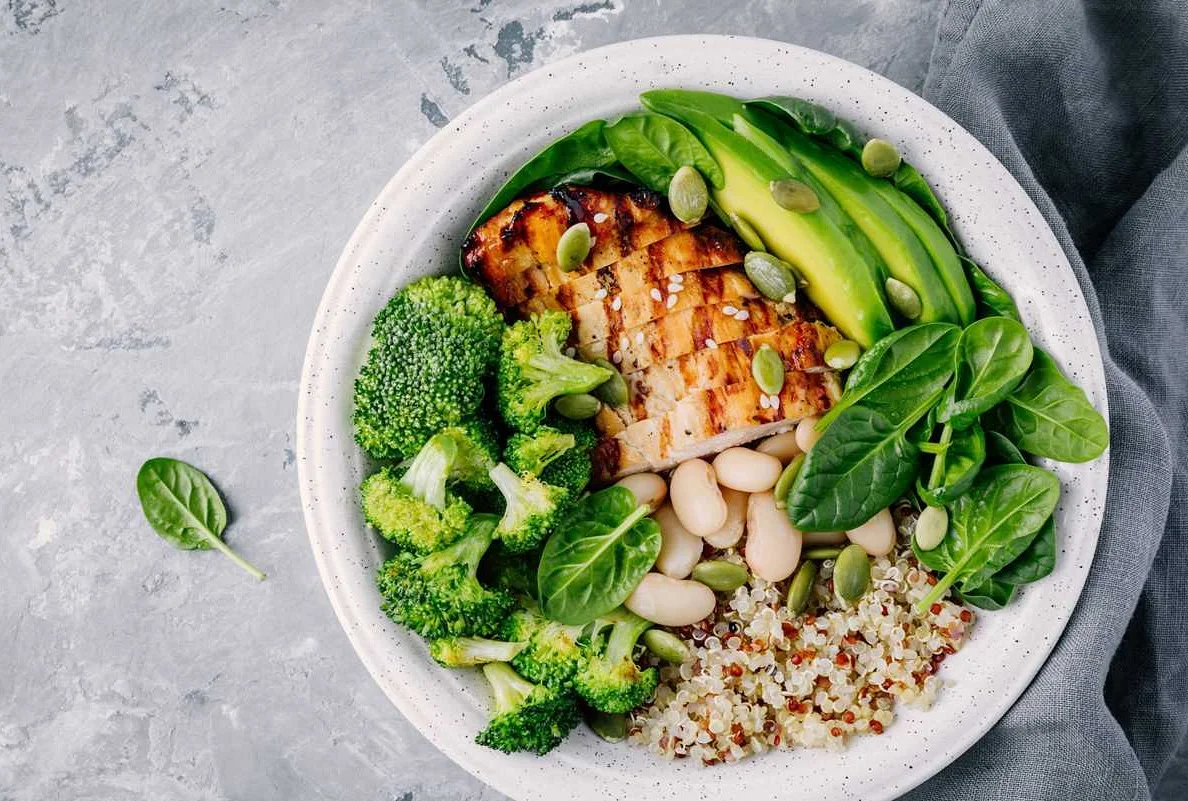A nutritionist warns about a mistake while eating that causes excess weight gain
Содержимое
A nutritionist warns that a common mistake while eating can lead to excess weight gain. Find out what this mistake is and how it affects your body. Learn how to avoid it and maintain a healthy weight.
In our fast-paced society, it’s easy to overlook the importance of mindful eating. Many of us have fallen into the habit of mindlessly consuming our meals, unaware of the impact it can have on our overall health and weight. As a nutritionist, I have witnessed firsthand how a critical mistake while eating can lead to excess weight gain.
The mistake I’m referring to is eating too quickly. In our busy lives, we often find ourselves rushing through meals, whether it’s because of work obligations or simply not allocating enough time for proper nourishment. This habit of scarfing down our food can have detrimental effects on our waistlines.
When we eat too quickly, our bodies don’t have enough time to register that we’re full. As a result, we tend to overeat, consuming more calories than our bodies actually need. Over time, this can lead to gradual weight gain and even the development of obesity.
Additionally, eating too quickly can negatively impact our digestion. Our bodies need time to break down and absorb nutrients from the food we consume. By rushing through meals, we hinder this process, leading to poor digestion and potential nutrient deficiencies.
So, what can we do to avoid this critical mistake and promote healthy eating habits? The key is to practice mindful eating. Take the time to savor each bite, chewing slowly and thoroughly. Pay attention to the flavors, textures, and smells of your food. By doing so, you’ll not only enjoy your meals more, but you’ll also give your body the chance to recognize when it’s had enough.
It’s also helpful to create an environment that supports mindful eating. Eliminate distractions such as television or phone screens during meal times. Sit down at a table, rather than eating on the go. These small changes can make a big difference in how we approach and consume our meals.
Remember, our bodies deserve to be nourished properly, and this starts with mindful eating. By avoiding the critical mistake of eating too quickly, we can prevent excess weight gain and promote overall health and well-being.
The Danger of Mindless Eating

Mindless eating refers to the act of consuming food without paying attention to what and how much we are eating. This can happen when we are distracted, such as watching television or working on the computer, or when we eat too quickly. It can also occur when we are emotionally or mentally preoccupied, leading us to eat more than we realize.
This type of eating can be dangerous because it can lead to excess weight gain. When we eat mindlessly, we may not register the signals of fullness from our body, causing us to overeat. Additionally, we may choose unhealthy and calorie-dense foods without being aware of their impact on our overall calorie intake.
Not only does mindless eating contribute to weight gain, but it can also hinder our ability to make healthy food choices. When we are not fully present while eating, we are less likely to savor and appreciate our food. This can lead to a disconnect between our body’s needs and our food choices, making it difficult to maintain a balanced and nutritious diet.
To combat the danger of mindless eating, it is important to practice mindful eating. This involves paying attention to the taste, texture, and satiety of the food we consume. It means eating slowly and savoring each bite, allowing our body to register fullness and satisfaction. By being mindful while eating, we can make healthier choices and maintain a healthy weight.
Remember: The next time you sit down for a meal or snack, take a moment to be present and fully engage with your food. Your body will thank you!
Overconsumption of Processed Foods
One critical mistake that can lead to excess weight gain is the overconsumption of processed foods. Processed foods are commonly high in added sugars, unhealthy fats, and artificial additives, making them calorie-dense and nutrient-poor. These foods are often designed to be addictive, leading to cravings and overeating.
When you consume processed foods, your body may struggle to recognize when you are full due to their lack of fiber and nutrients. This can result in overeating and consuming more calories than your body needs. Additionally, processed foods are often high in refined carbohydrates, which can cause spikes in blood sugar levels and ultimately lead to weight gain.
Furthermore, processed foods are typically low in satiety, meaning they do not keep you feeling full for long. This can result in frequent snacking and overeating throughout the day, as you constantly seek to satisfy your hunger. The excess calorie intake from processed foods can easily lead to weight gain over time.
| 1. Weight gain due to excess calorie intake |
| 2. Increased risk of chronic diseases such as obesity, diabetes, and heart disease |
| 3. Nutrient deficiencies and inadequate intake of essential vitamins and minerals |
| 4. Poor digestion and gut health |
| 5. Reduced energy levels and increased fatigue |
To maintain a healthy weight and overall well-being, it is important to limit your consumption of processed foods. Instead, focus on incorporating whole, nutrient-dense foods into your diet, such as fruits, vegetables, lean proteins, and whole grains. These foods provide essential nutrients and are more satiating, helping to prevent overeating and weight gain.
The Impact of Late-Night Snacking

Late-night snacking has become a common habit for many people, especially those who work late or have a busy schedule. However, this seemingly harmless habit can have a significant impact on our overall health and weight management.
One of the main reasons why late-night snacking can lead to excess weight gain is because our metabolism slows down as we sleep. Our bodies are designed to digest and metabolize food more efficiently during the daytime when we are active. Eating late at night disrupts this natural metabolic process and can result in the accumulation of unused calories.
Furthermore, late-night snacking often involves consuming calorie-dense and unhealthy foods. It’s unlikely that someone would reach for a salad or a piece of fruit as a late-night snack. Instead, it’s more common to crave sugary and fatty foods like chips, cookies, or ice cream. These foods are high in calories, low in nutrients, and can easily contribute to weight gain when consumed regularly.
Another factor to consider is the impact of late-night snacking on sleep quality. Eating close to bedtime can disrupt sleep patterns and lead to difficulty falling asleep or staying asleep. Poor sleep can further disrupt our metabolism and hormonal balance, making it even harder to manage weight effectively.
In addition to weight gain, late-night snacking has been linked to other health issues such as increased risk of diabetes, heart disease, and digestive problems. It can also affect our energy levels, mood, and productivity the following day.
To avoid the negative impact of late-night snacking, it’s important to develop healthier habits and strategies. This may involve setting a designated time for eating and sticking to it, prioritizing nutritious and satisfying meals throughout the day to prevent excessive hunger at night, and finding alternative activities or coping mechanisms to address nighttime cravings.
In conclusion, late-night snacking can have a detrimental effect on our weight and overall health. By being mindful of our eating habits, making conscious choices, and prioritizing balanced nutrition, we can avoid excess weight gain and improve our overall well-being.
The Downfall of Liquid Calories

When it comes to weight gain, many people often overlook the impact of liquid calories. These are the calories that we consume through beverages such as soda, juice, energy drinks, and even certain types of coffee.
One of the main issues with liquid calories is the fact that they are often high in sugar. This means that they not only contribute to weight gain but can also increase the risk of developing conditions such as diabetes and heart disease. Even seemingly innocent drinks like fruit juice can contain a significant amount of added sugars, which can quickly add up.
Furthermore, liquid calories do not provide the same level of satiety as solid food. This means that even if you consume a large amount of calories in the form of beverages, you may still feel hungry and be prone to overeating later on.
Another downfall of liquid calories is that they are often consumed mindlessly. Unlike a plate of food, where you can visually see how much you are consuming, beverages can be sipped on throughout the day without much thought. This can lead to a significant increase in calorie intake without even realizing it.
It’s important to note that not all beverages are created equal. Water is the best choice for hydration without adding unnecessary calories. Other options include unsweetened tea or coffee, which can be enjoyed in moderation. If you do choose to indulge in a sugary drink, it’s best to do so sparingly and be mindful of portion sizes.
In conclusion, the downfall of liquid calories can be a major contributing factor to excess weight gain. By being mindful of your beverage choices and opting for healthier alternatives, you can reduce your calorie intake and make progress towards achieving a healthy weight.
The Pitfalls of Emotional Eating
Emotional eating is a common behavior that many people engage in when they are feeling stressed, sad, or bored. It involves using food as a way to cope with or distract from negative emotions, rather than eating for physical hunger.
This habit can be dangerous and lead to excess weight gain for several reasons. First, emotional eating often involves consuming high-calorie, unhealthy foods that are low in nutrients. These foods tend to be highly processed, sugary, or greasy, providing little nourishment for the body.
Additionally, emotional eating can lead to a disconnection between the body’s natural hunger and fullness cues. People who emotionally eat may eat beyond the point of feeling satisfied, as they are using food to manage their emotions rather than to fuel their bodies.
Furthermore, emotional eating can create a cycle of guilt and shame. After indulging in emotional eating, individuals may feel remorseful or ashamed of their actions, which can lead to further emotional distress and potentially more emotional eating.
Breaking the cycle of emotional eating is essential for maintaining a healthy weight and overall well-being. It’s important to find alternative coping strategies for dealing with emotions, such as exercise, journaling, or talking to a trusted friend or therapist.
Learning to recognize true physical hunger versus emotional hunger is also crucial. Paying attention to the body’s cues and eating mindfully can help prevent overeating and promote a healthier relationship with food.
In conclusion, emotional eating can be a dangerous habit that leads to excess weight gain. By understanding the pitfalls of emotional eating and developing healthier coping mechanisms, individuals can break free from this cycle and achieve a healthier lifestyle.